Newton, R. R. (Ed.) (2015). American Catholic higher education in the 21st century: Critical challenges. Chestnut Hill, MA: Linden Press at Boston College.
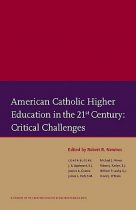 This edited volume contains papers from a 2013 symposium that discussed four critical issues in Catholic higher education: strengthening the Catholic intellectual tradition; personal and religious formation of students; the relationship of Catholic colleges to the Church; and preparing future leaders of Catholic post-secondary institutions. Continue reading “Critical Challenges”
This edited volume contains papers from a 2013 symposium that discussed four critical issues in Catholic higher education: strengthening the Catholic intellectual tradition; personal and religious formation of students; the relationship of Catholic colleges to the Church; and preparing future leaders of Catholic post-secondary institutions. Continue reading “Critical Challenges”
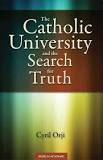 Orji asks “is there a “Catholic Intellectual Tradition” (CIT)?”, and if so, what is it? He notes people (including Catholic “intellectuals”) are confused about it. Is CIT independent of the “magisterium” (revealed truth) and the official philosophy of the Church or can it include other philosophies? Is it “too Catholic” or “not Catholic enough”?
Orji asks “is there a “Catholic Intellectual Tradition” (CIT)?”, and if so, what is it? He notes people (including Catholic “intellectuals”) are confused about it. Is CIT independent of the “magisterium” (revealed truth) and the official philosophy of the Church or can it include other philosophies? Is it “too Catholic” or “not Catholic enough”? 
 The first chapter gives a history of “American Philosophy in the 20th Century” (its “narrowing of scope” and separation of faith and reason), which is interesting, but the second chapter “Teaching Philosophy in a Catholic University according to John Paul II” is the most relevant. It is an interesting complement to the majority of authors who see theology as the central and unifying science.
The first chapter gives a history of “American Philosophy in the 20th Century” (its “narrowing of scope” and separation of faith and reason), which is interesting, but the second chapter “Teaching Philosophy in a Catholic University according to John Paul II” is the most relevant. It is an interesting complement to the majority of authors who see theology as the central and unifying science.  The opening to the preface — “this study is addressed to those who are educated enough to wonder if they are really educated” — seems directed to those of us struggling to familiarize ourselves with the Catholic intellectual tradition It is largely a positive book, seeing much good in the faculty already in place.
The opening to the preface — “this study is addressed to those who are educated enough to wonder if they are really educated” — seems directed to those of us struggling to familiarize ourselves with the Catholic intellectual tradition It is largely a positive book, seeing much good in the faculty already in place. 
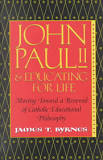
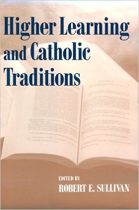 This edited volume derives from papers delivered at a 1999 conference sponsored by the Erasmus Foundation, which aims to “build bridges between the apparently disconnected worlds of Catholic thought and secular scholarship” (xi).
This edited volume derives from papers delivered at a 1999 conference sponsored by the Erasmus Foundation, which aims to “build bridges between the apparently disconnected worlds of Catholic thought and secular scholarship” (xi). 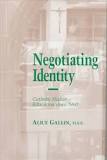 This “history” takes up where Gleason (1995) left off with the decline of “Neo-Scholasticism” and the attempts to modernize Catholic education post Vatican II. The underlying question is “what makes a university Catholic”? Gallin includes many historical examples from Catholic universities. These long examples and the political details make this rather a heavy read (I confess I skipped over many of the details) but Gallin clearly shows the origin of many of our current challenges, especially the financial issues and – as indicated in the title – questions of identity.
This “history” takes up where Gleason (1995) left off with the decline of “Neo-Scholasticism” and the attempts to modernize Catholic education post Vatican II. The underlying question is “what makes a university Catholic”? Gallin includes many historical examples from Catholic universities. These long examples and the political details make this rather a heavy read (I confess I skipped over many of the details) but Gallin clearly shows the origin of many of our current challenges, especially the financial issues and – as indicated in the title – questions of identity.  This book covers “the historical development of American Catholic higher education since 1900” (vii). While it is primarily from a Catholic perspective, Gleason places this development in a broader educational and ideological context. The introduction provides an historical overview that is developed in great detail in later chapters.
This book covers “the historical development of American Catholic higher education since 1900” (vii). While it is primarily from a Catholic perspective, Gleason places this development in a broader educational and ideological context. The introduction provides an historical overview that is developed in great detail in later chapters.